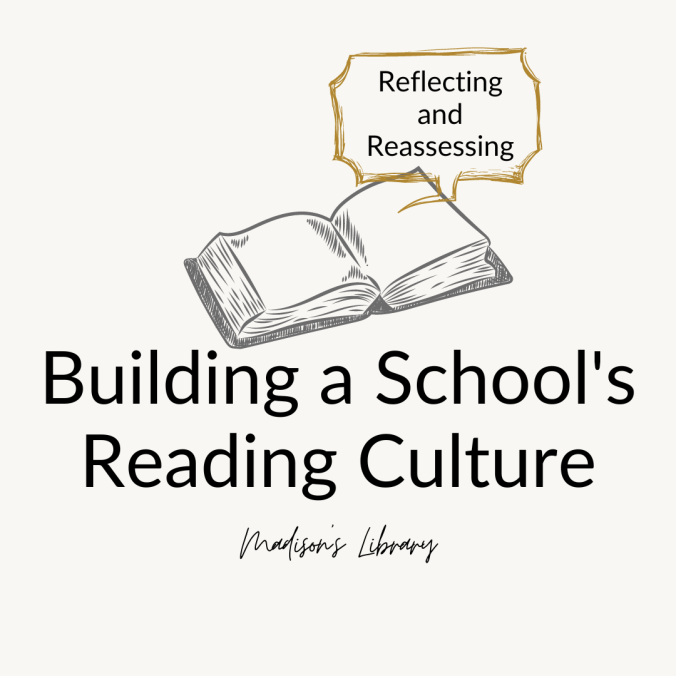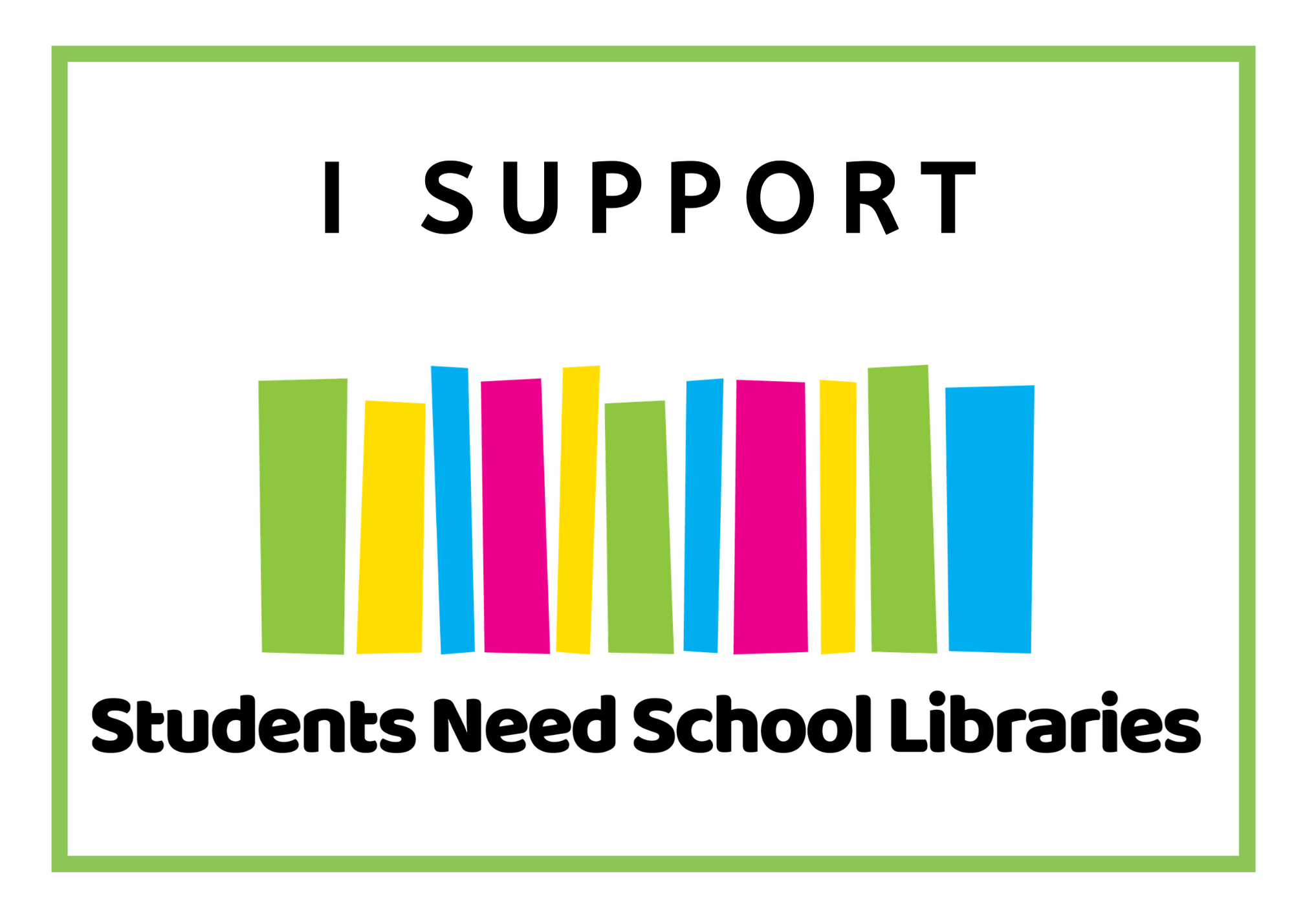Building A School Reading Culture – Part 8 – Reflecting and Reassessing
It’s been almost a year since I last wrote about building a reading culture. It’s been an interesting year. This post was meant to be about the steps we’ve taken to move towards a reading culture but I’ve decided to change that and instead take some time to reflect and reassess.
Over the past few years, I’ve looked at organisational culture research, culture change research and methodology, reading culture research, and tools for measure reading culture. I also used those tools to measure our reading culture starting point.
I look back over what I have learnt and know about reading cultures. I look at our school. And I can firmly say we don’t have much of a reading culture at all. It’s sad and gets me down a bit sometimes. My focus has also drifted. Reading culture has been at the back of my mind, looming over my shoulder reminding me it’s something I need to act on, but meanwhile I’m busy dealing with broken doors and trying to fight to keep my spaces, staff and budget. Turns out, you can’t do it all. The other impact has been change. Serious and unending change and that is rather exhausting. I had to laugh when I read the last few paragraphs of my last post in this series. How do you make reading a priority when the priority of your school is shifting rapidly or you don’t know what the priority is or going to be, what your leaders want or who they are? It’s hard. So maybe it’s okay that reading culture went on the back burner for a while. Maybe it gives me time to settle, survive and reassess. Not all journeys are smooth.
So, at this time, my building a reading culture journey feels like a failure. I mean, not a total failure. Our loan stats are still up significantly from before we started this journey. And we do have our keen readers and borrowers. And reading in the junior school is alive and well, supported by events and teachers. But is it a school wide, visible, vibrant thing? Hardly.
I read about a school that extended their roll call period by 20 minutes three times a week to create a reading time. How did they manage to do that? My school’s house leaders don’t even want to support an author visit, they would never allow reading to encroach on their roll call time. There would be an uproar if I suggested it. I’m not that brave. Maybe I need to be.
So, it’s back to the drawing board for me. Part of what’s got me stumped is the school-wide thing and that is hard when our school culture is so out of focus and unsure right now. All I can do is take action within my own space.
So, I’m setting some goals, starting small and working on them first. I’ll wait and build up before taking on the wider school.
Here’s what I aim to achieve
- Access to an author visit for all year levels in 2025.
- Extending book celebrations, including Book Week and LitFest and ensuring they have a place in the secondary school. What they will look like is still unclear, they need to be redesigned to fit the school, but that’s a project I’ll undertake.
- Reinvigorate my library lessons for year 7-10. I currently have fortnightly lesson with year 7s and some year 9 and 10 classes. Is this the best model? How can I reach all classes and in a way where the units best suit them and promote reading?
That’s it. Just those few things. At the start of the year I had a big list of things I wanted to do to build the reading culture but now I know I can’t do it all and I can’t do it as emotionally exhausted as I am, so I’m focusing small. We’ll see how it goes.



Thanks for your honest reflection, Madison. Our school doesn’t have much of a reading culture either. I’m thinking, reading and researching too, and trying to reconcile it all from my unique perspective. Remember that you’ve built a positive new library environment during your time at the school. You’ve achieved a lot! It’s okay to be in a holding pattern for a little while. When your school leadership settles down, the way forward may become clearer.
Thank you so much, Marie, for your kind words and encouragement. It is absolutely an ongoing process that we all work through. I’d love to hear what you are thinking, planning and researching.
Your post resonates with me. We don’t have a strong reading culture either and it is disheartening to see eager Yr 7’s drop off their borrowing by Year 8 onwards. It’s hard when our budget was cut by 20% this year and will probably do again next year. Our school went the other way and 30 minutes reading four days a week at ‘roll call’ got changed into structured literacy, numeracy and wellbeing lessons through booklets and then circulation rates right down due to students not borrowing in roll call any more. That was mainly due to students disengaged with reading and creating behavior issues. I’ve decided to focus more on engagement activities which get a better response and vibrant Yr 7 fortnightly library lessons and am grateful for those. I still find your ideas and methods inspiring so thank you. Keep up the good work!
It’s certainly a challenge. And trying to fit it into the school day when it’s not valued is really tricky. It sounds like you are doing amazing things, despite the challenges. Those fun engaging activities sound great. What has been some favourite examples? Would you be willing to share?
Thank you for your post. As a beginner Teacher Librarian it is nice to know that more experienced TLs also have these problems.
Absolutely. It’s an ongoing challenge for us all, I think.
Hi Madison,
Reading culture here is also a challenge. There’s a fairly strong culture in our Junior School, but once students hit Middle School, there’s no structured Library lessons or reading time at all. For some students, the only reading they’ll do is the compulsory class novel reading in English classes. I think there might be a term of DEAR during Year 9, but that’s about it. I understand your frustration, especially the challenge of working out priorities and what you can and can’t do with the time and support you have from leadership. My decision this year was to start small and see where things lead. So I started book chats, offering to visit English classes once a term or so with a cartload of books to promote certain titles and encourage reading. The support, or lack thereof, even from some English teachers has been surprising. However, some teachers have embraced my visits and the feedback and student enthusiasm has been really encouraging.
Thanks for sharing about this topic. Sometimes it feels like all other school libraries have this reading culture thing all sorted, but to know it’s a widespread challenge is somewhat comforting.
Thank you so much for sharing your experiences and insight. It really is a challenge, especially convincing English teachers that reading and visiting the Library is valuable. Shocking, as you said. Yet others are wholeheartedly involved. Starting small is great advice. I think we are certainly not alone in struggling but persevering to build a reading culture.